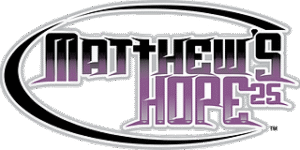
Matthew's Hope
Key Points

A Winter Garden and Cocoa-based homeless outreach organization proposed the concept of sleeper buses to the city of Apopka as a means of helping people move off the streets and toward a life of independence and self-sustainability.
Scott Billue, founder and CEO of the nonprofit Matthew’s Hope, presented the proposal at the June 4 Apopka City Council meeting, a proposal he said would cost the city nothing.
According to Billue, a sleeper bus will pick up people and park overnight in a location between 7 p.m. and 7 a.m. the next morning. One bus will accommodate 20 homeless people for a maximum of three days.
Each bus will have a qualified security guard on board along with the driver, cameras, and the means to secure personal items and pets, if necessary, Billue said.
Billue also said that once a parking area is found for one sleeper bus, the first bus is expected by year’s end, with subsequent buses following a 120-day timeline.
Billue emphasized that the sleeper buses will not solve homelessness.
“Anybody who talks about eradicating homelessness clearly doesn’t understand it,” he said. “But what we can do is we can make a dent in it. We can make a change in how we approach it because doing the same old, same old is what’s going to get you the same results we’re seeing right now.”
The idea for the sleeper busses arose from the passing of Florida House Bill (HB) 1365 in 2024, which “prohibits counties & municipalities from authorizing or otherwise allowing public camping or sleeping on public property without certification of designated public property by the Department of Children and Families.”
Matthew’s Hope is also working on partnering with Brevard County municipalities to establish sleeper buses there.
Billue said before HB 1365 became law, he spoke with Tallahassee leaders and learned that the bill’s purpose was to move people toward services. The entire state budget for addressing homelessness is $35 million, whereas Matthew’s Hope’s budget for covering 17 municipalities is $15 million, Billue pointed out.
The type of liability involving sleeper buses would depend on what the agreement between the parties would look like, according to city attorney Andrew Hand.
“One of the things I’ll mention for the city to be liable would require some sort of negligence or some sort of intentional act on the city that would give rise to liability in the first place,” Hand said. “But again, I think it just matters as to what the ultimate agreement is between the organizations, and certainly you can request insurance so coverage is provided for the city area.”
Billue assured the City Council that Matthew’s Hope has several layers of insurance, which is “my greatest expense,” he said.
Mayor Bryan Nelson suggested the city could pay for insurance if partnering with a church and see what local churches would partner in giving extra services.
The Apopka City Council has agreed to consider a formal agreement at its next meeting, June 18, for approval for Matthew’s Hope to park sleeper buses in the city.
Matthew’s Hope has been serving in Apopka for 15 years, but the nonprofit’s approach to the homeless situation “has been very different than most,” Billue said. Matthew’s Hope aims to provide people with a mental health care team that goes into the field with the nonprofit, offering a wide array of mental health care services, from basic counseling to psychiatric care.
Matthew’s Hope’s Winter Garden outreach center alone takes up 11,000 square feet not including houses, preschool or other amenities. For many years, Matthew’s Hope’s goal has been to establish a smaller facility in Apopka where the nonprofit could give the same basic services as in Winter Garden, then transport people from Apopka to Winter Garden for further services, Billue said.
The Apopka Chief and The Planter are weekly community newspapers, independently owned and family operated, that have served the greater Apopka area in Central Florida since 1923 and 1965 respectively.
Follow The Apopka Chief on Facebook.
Follow The Apopka Chief on X.
Follow The Apopka Chief on Instagram.
Suggested Articles
No related articles found.



